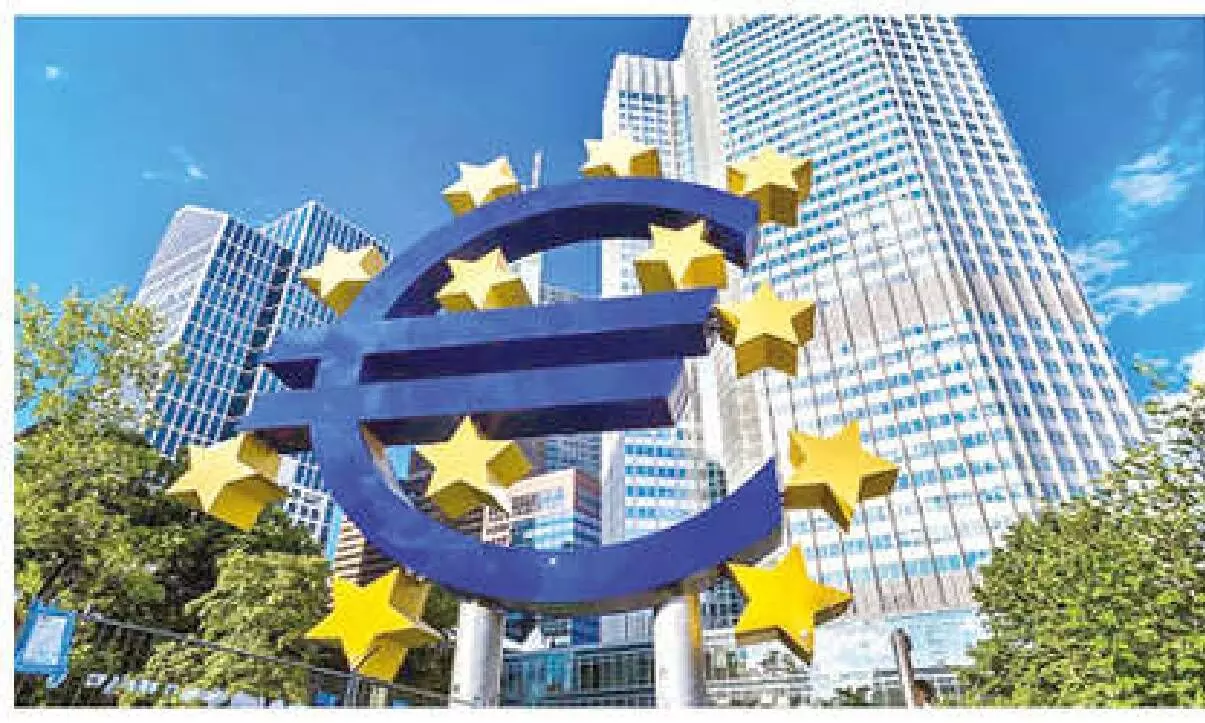Europe’s central bank set to halt rate hikes
As the Mideast war casts a shadow over the economy
image for illustrative purpose

Frankfurt The European Central Bank (ECB) is ready to leave interest rates unchanged Thursday for the first time in over a year as the Israel-Hamas war spreads even more gloom over already downbeat prospects for Europe’s economy.
It would be the bank’s first meeting with no change after a torrid pace of 10 straight increases dating to July 2022 that pushed its key rate to a record-high 4 per cent. The ECB would join the US Federal Reserve, Bank of England and others in holding borrowing costs steady — albeit at the highest levels in years — as inflation has eased. In Europe, inflation peaked at a painful 10.6 per cent in October for the 20 countries that use the Euro currency as Russia’s war in Ukraine took a toll. Those high prices have been poison for consumer spending, draining household finances with added costs for necessities such as food, heat and electricity. But with inflation now down to 4.3 per cent, analysts expect the ECB to hold off on more hikes during its meeting in Athens. It is one of the bank’s regular meetings away from its Frankfurt headquarters, meant to underline its status as a European Union institution. Now, worries are sharpening about weakening economic growth and even the risk of a recession. Rate hikes are a central bank’s chief weapon against inflation, but they can weigh on economic growth by raising the cost of credit for consumer purchases, particularly homes, and for companies to buy new equipment and facilities. Surveys of purchasing managers by S and P Global indicate that economic activity fell in October. Analysts at ABN Amro bank foresee a 0.1 per cent drop in economic output in the euro zone for the July-September quarter and minus 0.2 per cent for the last three months of the year. The EU will publish third-quarter figures Tuesday. Inflation’s impact on consumers was a big reason why Europe scraped out only 0.1 per cent growth in the first two quarters of this year. Its biggest economy, Germany, is forecast by the International Monetary Fund to shrink by 0.5 per cent this year, making it the world’s worst performing major economy.

